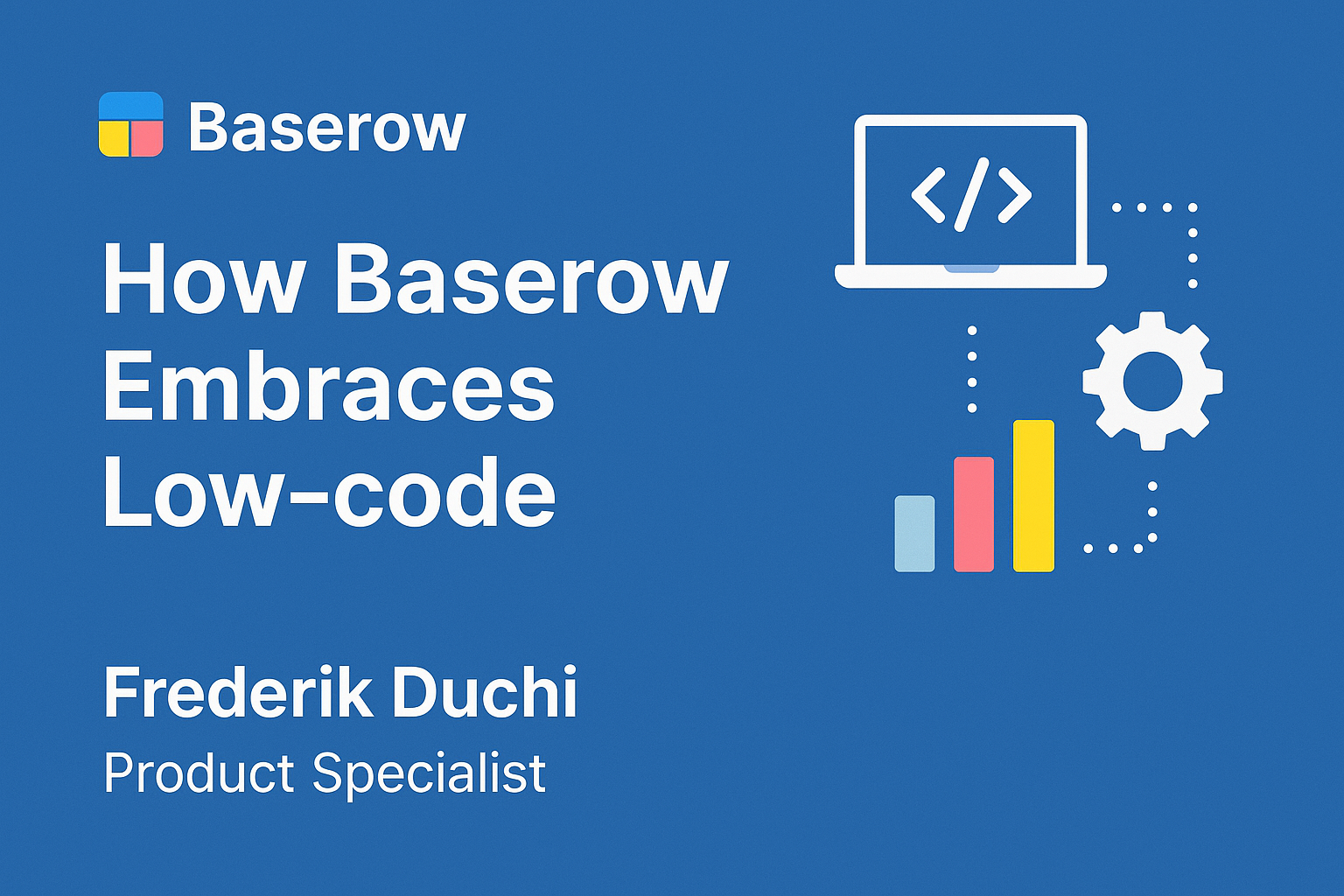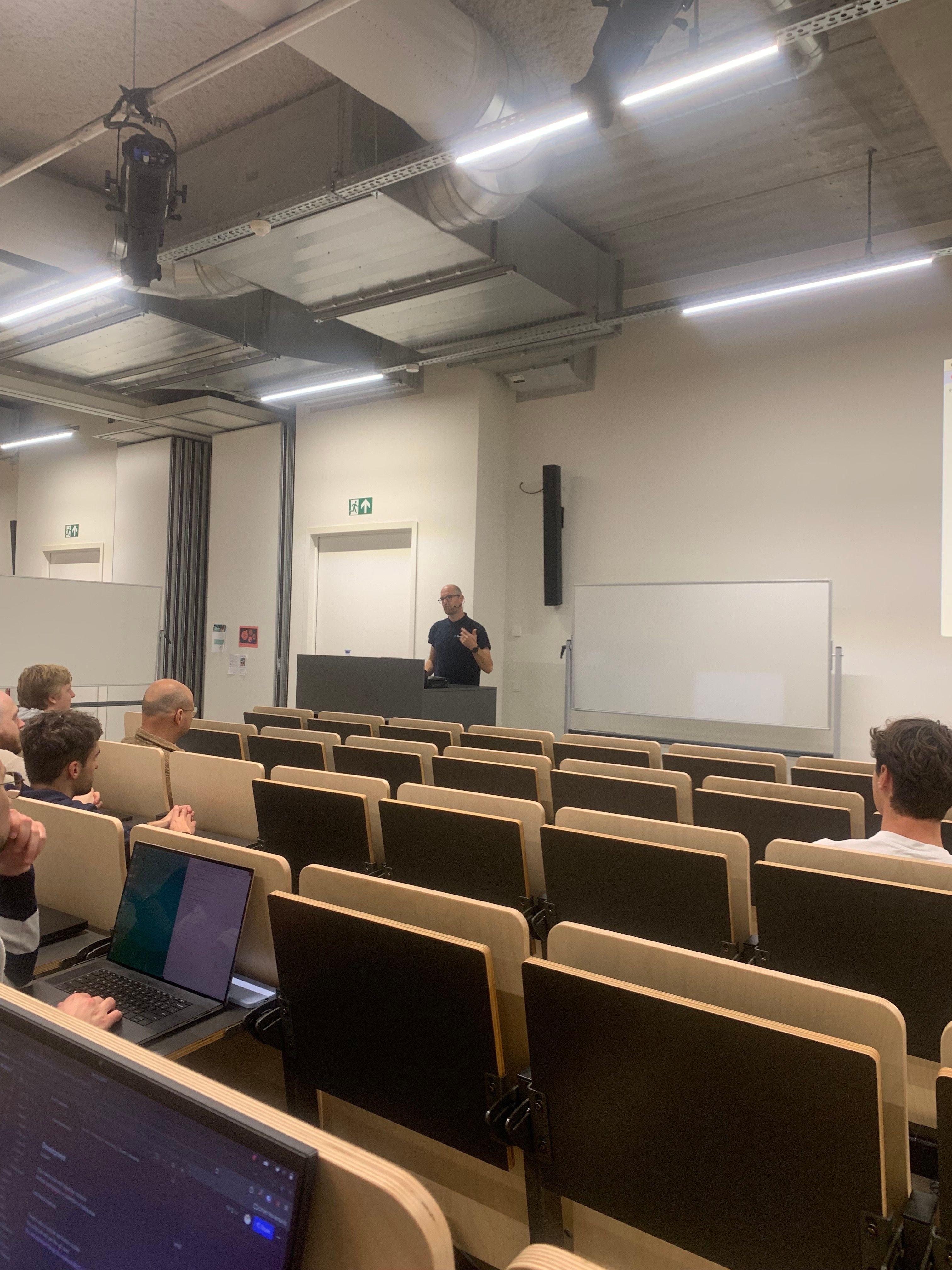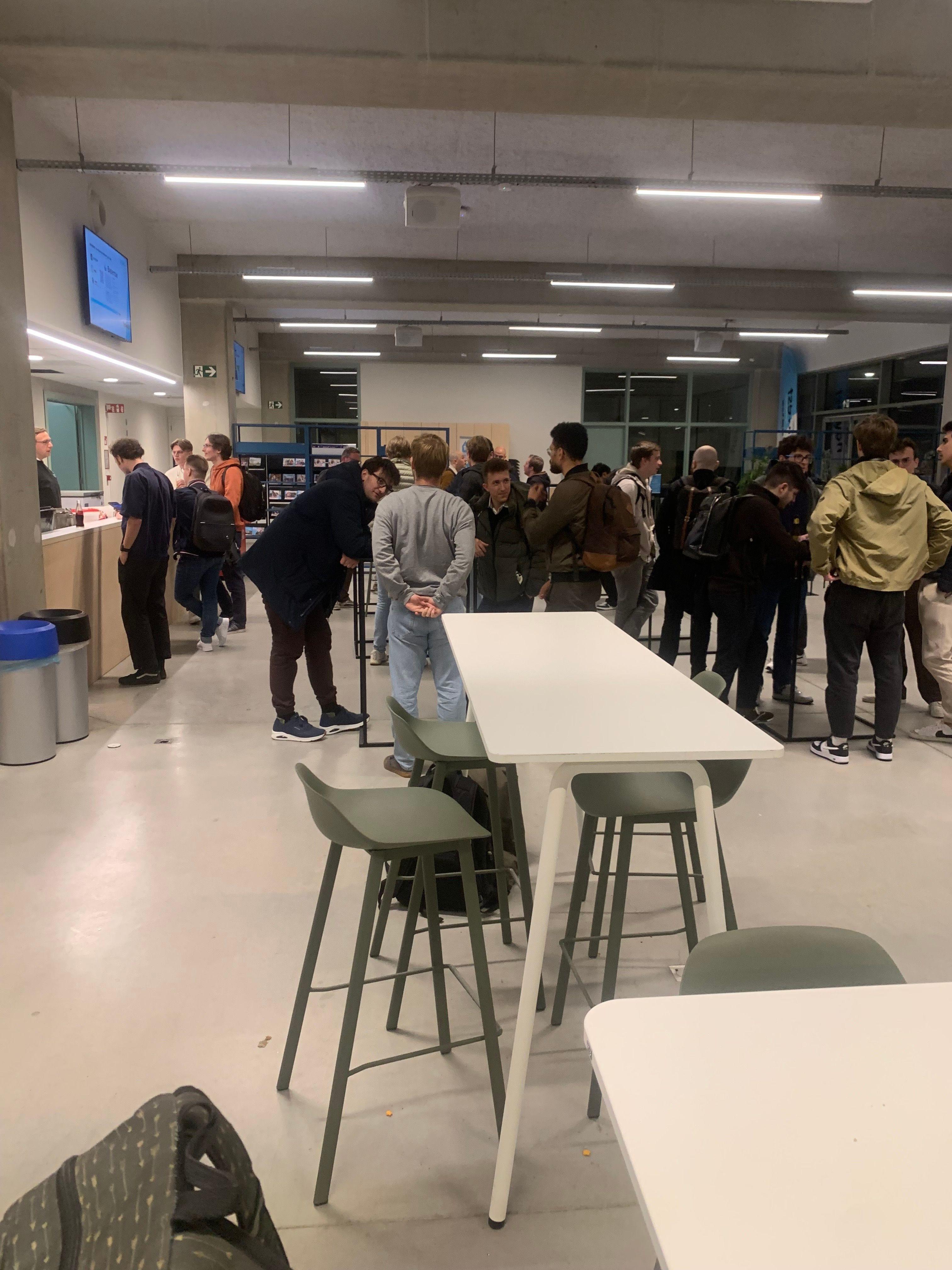No code apps - Baserow

Event Overview
Recently, I had the opportunity to attend a Tech&Meet presentation by Frederik Duchi, Product Specialist at Baserow, titled "How Baserow Embraces Low-code." The hour-long session offered valuable insights into the growing low-code/no-code movement and specifically highlighted how Baserow is positioning itself in this rapidly expanding market.
Speaker Background
Frederik Duchi works directly for Baserow as a Product Specialist, giving him deep expertise in both the technical capabilities of the platform and its practical applications in business environments. His presentation combined theoretical knowledge about low-code development with practical demonstrations of the Baserow platform.
Technical Content
The presentation began with an exploration of what exactly low-code and no-code mean in today's technology landscape. Frederik shared various definitions, but the common thread was clear: these approaches enable software development with minimal or no traditional programming, allowing non-technical users to create applications and automate workflows.
A fascinating market projection was shared - by 2030, the global low-code development platform market is expected to reach $187 billion in revenue, accounting for more than 65% of application development activity by 2024. This emphasizes the growing importance of this development approach in the tech industry.
The speaker organized current platforms into four main categories:
- Databases/Backend (Baserow, Airtable, NocoDB)
- Mobile & Web Apps (Glide, MS Power Apps, Zoho Creator)
- Website Builders (Webflow, Bubble, Wix)
- Automation & Integration (Zapier, N8N, Make)
What I found particularly interesting was Frederik's emphasis on open-source solutions. He highlighted several limitations of typical no-code tools:
- Most are SaaS-only and closed source
- Many don't scale well
- They often have limited or expensive API access
- Users don't truly own their data
- They're not accessible to everyone
In contrast, he explained how open-source solutions like Baserow provide:
- Business continuity through no vendor lock-in and 100% data ownership
- Enhanced security through self-hosting, code inspection, and community oversight
- Greater extensibility through customization and plugins
- Better scalability with Docker, Kubernetes deployments
- Cost efficiency (free until value is proven)
The presentation concluded with an overview of what users typically build with Baserow, including product roadmaps, data repositories, project management systems, CRM solutions, backend databases for web applications, and HR systems.
Connection to Course Material
This presentation directly relates to our Professional Networking module's focus on emerging technologies and lifelong learning. The low-code movement represents a significant shift in how applications are developed, and understanding these tools will likely be essential for IT professionals going forward.
As we've discussed in our coursework, the democratization of technology is a key trend, and low-code platforms exemplify this by enabling non-developers to create solutions that previously required specialist skills. This aligns perfectly with the "open-minded attitude" our module encourages.
Areas for Improvement
While the presentation offered a solid overview of Baserow's capabilities, I would have appreciated more hands-on examples or a guided workshop component. The theoretical aspects were well covered, but seeing more practical applications would have enhanced the learning experience.
Additionally, a comparison of specific features between Baserow and competitors like Airtable would have provided more context for those unfamiliar with these platforms.
Future Relevance
The skills and knowledge gained from this session are definitely applicable to my future career. As development resources become increasingly constrained and business needs accelerate, low-code solutions will likely play a crucial role in bridging the gap between technical and non-technical team members.
I'm particularly interested in exploring how these tools might be integrated with more traditional development approaches to create hybrid solutions that leverage the strengths of both paradigms.
Would I Recommend It?
Absolutely! This presentation provided valuable insights into an important technology trend that's reshaping how we approach software development. I would especially recommend it to students interested in product management, business analysis, or anyone looking to understand how technology development is evolving beyond traditional coding.
The resources shared, including documentation, community forums, knowledge base, templates, tutorials, and a YouTube channel (all available through https://baserow.io), offer plenty of opportunities for continued learning on this topic.
Next Steps
Having been introduced to Baserow, I plan to experiment with building a simple project management application to better understand its capabilities and limitations. This hands-on experience will help me evaluate whether such tools could be integrated into my workflow for future projects, both academic and professional.
Event gallery


Written by
Sayidali Ibrahim